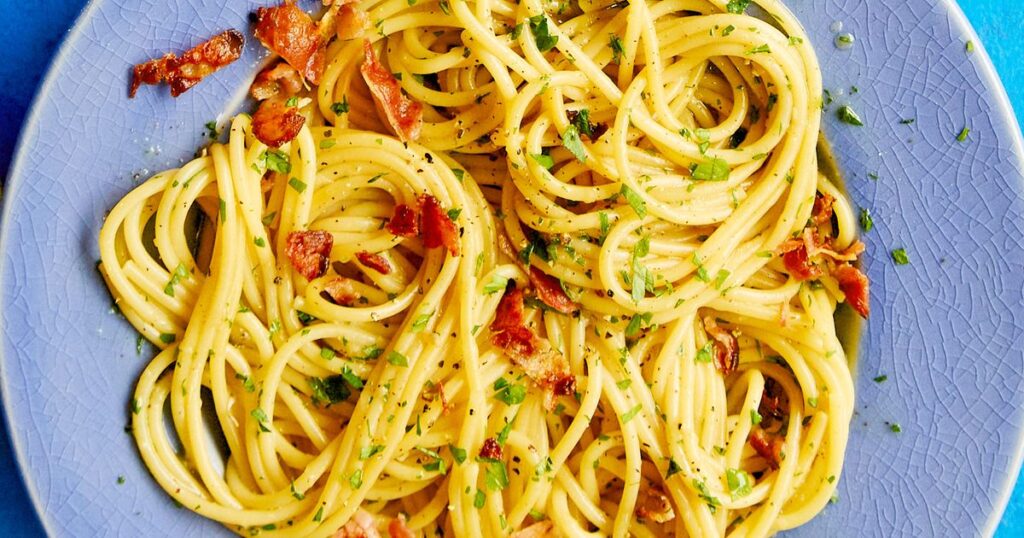Discover a wealth of plant-based recipe inspiration with our vegan recipes and vegetarian recipes, and then explore the globe through our cuisine recipes to experience different cooking traditions.
The forgotten magic of fermentation
Fiedler’s approach is rooted in a deep respect for tradition, especially the transformative power of fermentation. He’s fascinated by how time, patience and microbial alchemy can elevate the simplest ingredients.
“In South India, people queue the streets at six-thirty in the morning in Bangalore to get an idli with coconut chutney,” he shares, his voice brimming with admiration. “It’s an incredible way to start the day, honestly. Like a firecracker.”
For Fiedler, fermentation isn’t just a trend – it’s an inheritance that many cultures have never lost. “The more advanced the culture, the quicker we tend to lose ingrained culinary traditions,” he observes. “But in places like South India, you still see a lot of traditional food that is really good for you, being made that way.”
Food stories from the road
Travel is at the heart of Fiedler’s culinary philosophy. His new book, ‘Naturally Vegan’, is a passport to dishes that just happen to be plant-based, shaped by religion, poverty and the bounty of local landscapes.
“It’s so exciting because you realise, I don’t have to actually adapt dishes to my diet,” he explains. “I can still tap into tradition and culture and take part in that.”
Some discoveries were born out of necessity – like Burmese tofu, made not from soy but from chickpea flour. Others, like the Turkish bean stew kuru fasulye, are lessons in balance and resourcefulness, pairing slow-cooked beans with tangy pickles and fluffy pilaf. “The ingenious way of cooking is you slow-cook it in a tomato and pepper paste broth,” he says, describing the process with the reverence of someone who’s spent hours at the stove.
Slow food and the fight for diversity
As an ambassador for the Slow Food movement, Fiedler is passionate about preserving not just recipes, but biodiversity itself. He champions initiatives like the Arc of Taste, which seeks to save endangered varieties of fruits, vegetables and legumes.
“Every vegetable, every piece of nature that exists is sort of a capsule of DNA that has the answer to something we might encounter somewhere in the future,” he explains. The humble banana, he warns, is a cautionary tale – with thousands of varieties in existence, but only one dominating supermarket shelves and now threatened by disease.
Cooking for joy, not perfection
For all his expertise, Fiedler’s food memories are disarmingly nostalgic. When asked about his favourite dish, he doesn’t hesitate: his mother’s spaghetti aglio, olio e peperoncino. “It’s very simple, but it’s my mum’s,” he smiles. “There was this time growing up at home that my brother and me, we loved it so much that with the four of us, we would devour a kilo of pasta in one sitting.”
He’s the first to admit that recreating dishes from his travels isn’t always straightforward. His attempt at Turkish börek, with painstakingly stretched filo and sweet tahini filling, ended in “one big blob of dough.” But for Fiedler, the joy is in the trying – and in sharing the process, mishaps and all.
Beans, pressure cookers and simple pleasures
When it comes to practical advice, Fiedler is an advocate for the unglamorous but essential: beans, legumes and the humble pressure cooker. “If you use a pressure cooker with a small hack, chickpeas take seven minutes,” he enthuses. “It’s incredible. So quick, and they come out perfectly tender.”
His food guilty pleasure? Salt and vinegar crisps with a pint in a pub – a nod to his adopted British home. And the ingredient he thinks is the biggest waste of money? Jarred beans, which he admits are convenient but far pricier than dried.
Good food, good company
For Fiedler, good food isn’t just about what’s on the plate. “It’s emotional, it’s historical, it’s cultural. It’s fun to eat,” he says. “Ultimately, good food is the difference between eating something for the sake of eating it and eating something that will plant the seed and one day become something that will make a difference.”
His advice for anyone looking to cook more sustainably? “Grow and eat more legumes. They’re a powerhouse, good for your gut and good for the planet.”
As Fiedler’s journey shows, the best plant-based food isn’t a compromise – it’s a celebration, rooted in tradition, bursting with flavour and always best when shared.
Discover more relevant content…
Good Food Podcast – nutritionist Kerry Torrens on common health questions
Tips for using a pressure cooker
Good Food Podcast – Olia Hercules on Ukranian cuisine, the healing power of cooking and her hopes for the future
Beans and pulses recipe ideas
Good Food Podcast – Niki Segnit on exporing and pairing flavours

